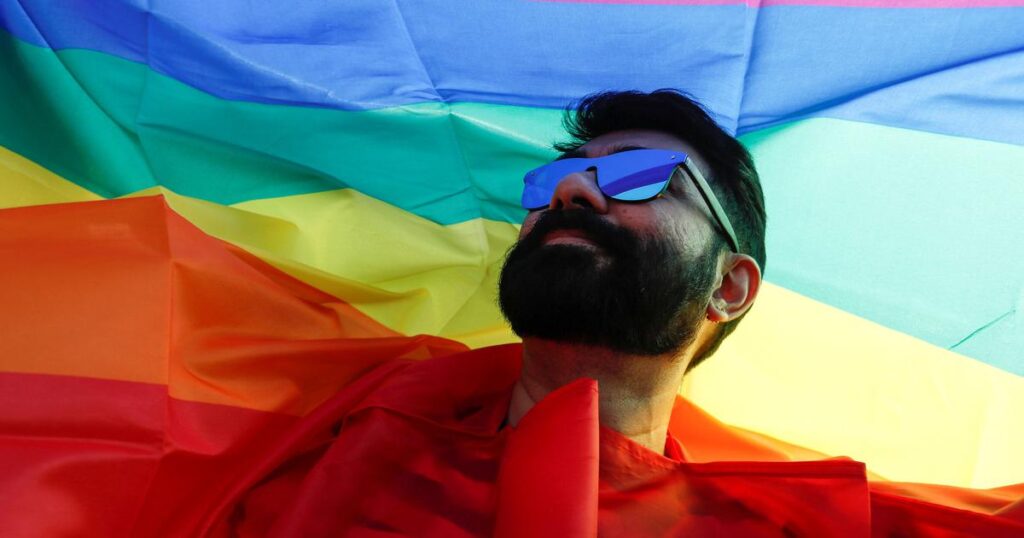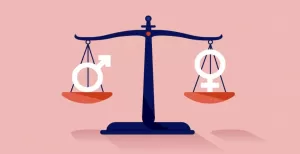The Madras High Court Judge Who Banned Gay Conversion Therapy Spoke of Fighting His Own Biases
An Indian judge who went to a psychologist to tackle his “ignorance and prejudice” about same-sex relationships has been praised for his ruling in a police harassment case that campaigners hope could raise awareness about LGBT+ rights.
Judge Anand Venkatesh, who sits in Madras High Court, ruled this week in favour of a young lesbian couple who had accused police of “harassing questioning” when following up a missing persons report filed by the women’s disapproving parents.
In a 107-page judgment that LGBT+ activists hailed as frank and sensitive, Venkatesh describes the personal journey he undertook to confront his own biases and lack of knowledge about gay relationships before giving his ruling.
“I have no hesitation in accepting that I too belong to the majority of commoners who are yet to comprehend homosexuality completely… I am the society, with all the misconceptions present,” he said in the ruling.
“Ignorance is no justification for normalising any form of discrimination,” he said, adding that he wanted to educate himself so his ignorance would not interfere with “guiding the LGBTQIA+ community towards social justice”.
India’s Supreme Court scrapped a colonial-era law criminalising same-sex relations three years ago, but LGBT+ people face widespread discrimination in the socially conservative country.
They are often rejected by their families and denied jobs, with some driven into sex work or begging.
The two women who filed the harassment complaint, both of whom are in their early 20s, left their homes in southern Tamil Nadu state and moved to the city of Chennai because their parents were opposed to their relationship.
“When I first met the girls what shone through was their determination to stay together,” said their lawyer Manuraj Shunmugasundram.
“And what the judgment has done is pulled up society so that it becomes easier for the existing law to be implemented,” he added, referring to the 2018 Supreme Court ruling.
Unlearning
At the start of hearings in the case, Venkatesh told the court he was not “fully woke” on the issue and had decided to undergo “psycho-education”.
In his ruling, he gives details of his meetings with a psychologist and members of the LGBT+ community, calling them his “gurus”.
“The voice of this community is now getting louder and stronger and society can no more turn a deaf ear and a time has come to make that change,” he wrote, recommending police and government officials undergo LGBT+ rights awareness training.
He also recommended counselling for parents, gender neutral restrooms in schools and colleges and action against medical practitioners who claim to be able to “cure” homosexuality.
LGBT+ campaigners said Venkatesh’s judgment, and willingness to confront his own prejudices, could mark a precedent for similar cases.
“The judgment is like a present for us in Pride Month,” said Sunil Menon, founder of LGBT+ support group Sahodaran. “The key aspect in this practical judgment is that the police should not ‘rescue’ a person as a first step when parents file a complaint, (but) instead treat them as adults who have free will.”
(Courtesy: Thomson Reuters Foundation News.)
❈ ❈ ❈
In another article, “A Big Thank You For Justice Anand Venkatesh”, Advocate Ajay Kumar adds (extract):
When I was reading the judgement of the High Court at Madras in Sushma & Anr v. Commissioner of Police & Ors (WP 7284 of 2021 Judgement Dated 7 June 2021), I couldn’t believe my eyes. As someone who has had to deal with India’s judiciary on a professional level, I never thought it possible that an institution which is viewed by many as one of the last bastions of the heteropatriarchy could decide to do something such as what Justice N. Anand Venkatesh did in this matter. (In feminist theory, heteropatriarchy is a socio-political system where cisgender males and heterosexuals have authority over cisgender females and over other sexual orientations and gender identities. It is a term that emphasises that discrimination of women and LGBTQ people has the same sexist social principle.)
I still remember the day when the Supreme Court delivered its verdict in Suresh Kumar Koushal v. Naz Foundation in 2013 overruling the Delhi High Court’s verdict in Naz Foundation v. Govt NCT Delhi.
I was at a new employer by the time this judgement came out and the reaction in the office was mixed. While some were openly celebrating, a lot of seniors wondered what effects this judgement would have for “society” at large.
There was almost universal agreement that the criminal prohibition had to go. But social acceptance seemed like a pipe dream at that time, in particular acceptance within the contours of the legal profession.
For people who spend a lot of time on constitutional rights, my experience with legal professionals has taught me that they seem to be very specific about who gets to socially enjoy having those constitutional rights.
But perhaps that is exactly why what Mr. Justice Venkatesh did was so remarkable. Here is a judge, of a constitutional court no less, who acknowledges that he needs to understand more about the LGBTQI community before he can sit in judgement over our rights. That acknowledgment itself is half the victory for those of us who campaign for greater freedoms for LGBTQI individuals.
While it is not uncommon for judges to openly remark that they don’t understand something, it is extremely unusual for a judge not to just throw the brief at the counsel and ask them to explain it. Instead, Justice Venkatesh took it upon himself to make an inquiry, and that too a broad inquiry, to listen to stakeholders and challenge his own biases. Maybe this may happen in private many times, but to do so in front of the public shows an element of probity and commitment to the cause of justice that exemplifies our constitution.
While the Supreme Court in Navtej Singh Johar pronounced that people like me aren’t criminals, I will forever be grateful to Justice Venkatesh for being the first judge who recognised that LGBTQI individuals are people. Real people, with real lives and real feelings.
There will be much written about the impact those guidelines issued will have. Perhaps we will not be able to truly discern how path-breaking this judgement is for many years from now. But I wanted to take time out, of another busy day, to minute my appreciation of Justice Venkatesh. Thank you Justice Venkatesh for making me and millions of people like me, feel like we belong to this society and that this society acknowledges our existence.
(Ajay Kumar is an Advocate practicing at the High Court at Bombay. Courtesy: The Leaflet.)




